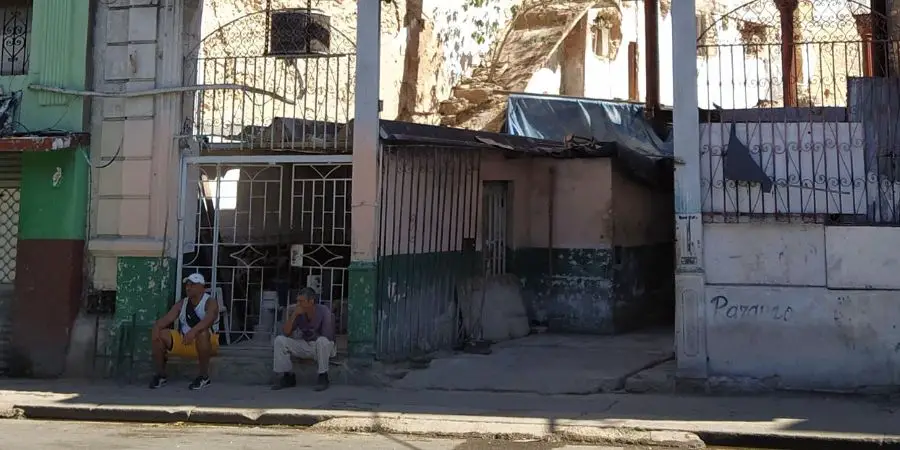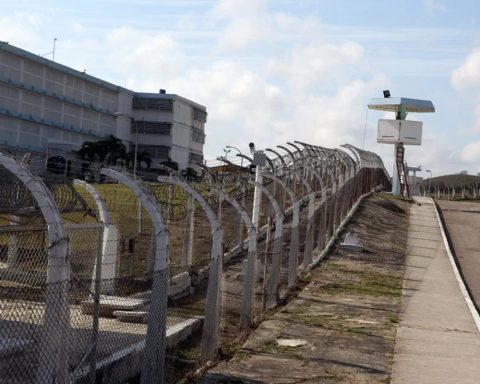Havana Cuba. – Between paying for transportation to and from work, plus lunch, Odette came to spend more than what she earned as salary. “The last few months I only worked to be able to go to work,” says she, who until November of last year worked as a civil engineer for a construction company in Havana.
And he goes on to say: “I didn’t even have enough to buy clothes and food. There was a month that they even came to cut off my electricity because I really didn’t have a penny. I have been hungry. I had days that I would not stop crying because it cannot be possible that having studied and worked all my life I go hungry. Marlon [su hijo de apenas 15 años, que aún estudia] He defends himself out there selling things and he helps me, but working here in Cuba is crazy, it doesn’t make sense, I’m supposed to be the one supporting him. I prefer to stay at home and fight from here.”
Now Odette dedicates herself, from her home, to selling any type of contraband merchandise, “whatever she likes”, and from time to time washing bed linen for a private hostel. “I earn just a little more than before but at least I don’t have to move from here,” she concludes.
When in December 2020, with wage reformit seemed that his new salary as a doctor would be enough to live with some dignity, Frank put aside the idea of leaving Medicine to work as a private taxi driver, but very soon he was forced to resume the plan, verifying that, even with the increase , his life had worsened, as well as working conditions.
“Before graduating, seeing the work that my teachers put through, the terrible conditions in the hospitals, the people dying without being able to do anything, I thought about leaving Medicine but, so as not to bother the old man, I continued”, says Frank. “That was the worst decision because there is no more slave job in Cuba than Public Health; They treat you like dirt and they pay you the same. The doctor in Cuba is like a beggar, he lives on a gift [de los pacientes]that they send you on a mission [contrato para integrar las brigadas médicas en el extranjero], and all the time lower your head, because if you raise it a little it happens to you like me. I endured and endured because the salary increase came first, and then I said ‘If I go out on a mission, I’ll stay’, but everything got worse, neither the salary was enough nor the mission arrived, so I grabbed the old man’s car and started boating [trabajar como taxista]”.
Both Odette and Frank are just two examples of a massive labor exodus that right now is taking place in all Cuban companies and institutions, and that even, unlike previous years, extends and affects a non-state sector that barely Five years ago, it could afford to select its employees due to the increasing number of workforce that migrated from the state sector looking for improvements.
“Before [de 2019] there was talk of a migration from the state to the non-state sector, the workers [estatales]Even professionals, they changed to jobs that had nothing to do with their professional profile,” explains Ana Rosa García, a Human Resources specialist at a state company belonging to the Ministry of Domestic Trade. “The trend was so alarming that this movement was regulated with limited places for non-state businesses and even with threats of annulment of titles to many professionals (…); Even so, people left, they didn’t even return to pick up the employment file. To hell with the sanctions. At that time we lost 20% of our workers, but only in the last six months we have lost 60%. Only the oldest who are waiting for retirement have stayed, but all the young people, without exception, have left, and the worst thing is that they have either left the country or have preferred to stay at home. (…) The exodus has spread to the non-state sector because not even the salaries there are enough to face this new reality in which prices rise uncontrollably every day, in which there is no transportation, there is no gas to cook, the blackouts, you live from queue to queue to be able to eat, and you earn more money being at home than going out to work”.

“Some have emigrated but the most amazing thing is that the majority is at home,” says Evelio, owner of a couple of bars-restaurants in Havana where he came to give employment, either regularly or irregularly, to about a hundred people, but today he barely manages to get by with half.
And Evelio continues: “Yes, there are those who left [del país] but those are the least. There are my workers who have left because they have told me that their salary does not match the reality they live in, that they earn more recording memories [copiando películas y series pirateadas] in their houses or selling things in the doorway of their houses. (…) I used to pay good salaries but today it’s nothing compared to the way things are. Lately, a worker here lasts a month, maybe two. There are those who have worked for me one night and the next day they do not return. And it is that almost no one leaves tips anymore, or what they leave is useless when a soft drink costs 200 pesos anywhere. I have tried not to close, despite the fact that every day it is more difficult to stay open, because at the moment I wake up without a cook, without dependents”.
The numbers of the labor exodus are so enormous that even the official press has been forced to address the issue on several occasions, although after the main figures of the regime publicly recognized the seriousness of the matter, especially when it has seriously affected the energy sector. where there are thousands of casualties registered due to low wages and poor working conditions. If in 2021 the exodus of workers reached the figure of 6612, already by September 2022 casualties numbered over 8,000.
“Who wants to expose themselves to death for 2,000 or 3,000 pesos when a bottle of oil costs 1,000?” says Armando, a worker at the Electric Company who recently asked for leave to sit at home, waiting for “any little job that fall”.
“They don’t give you boots, they don’t give you anything extra,” continues Armando. “It’s fire all day, go to the provinces and stay in a lousy shelter and with horrible food, I was not going to put another dead. No one was left from my brigade. After Pinar del Río [afectaciones por el huracán Ian en septiembre de 2022] everyone left. In the eight years that I worked there I got an ulcer, my wife gave birth and I didn’t even have enough to buy a culero. Everything was sent to him by my sister-in-law from Italy. A lot of diplomas and a lot of little speeches, but with that my children don’t eat. Now I’m at home and I’m managing until I can leave. This is not fixed by anyone.”
Today, the lack of labor does not escape even tourism, perhaps the most coveted labor sector for Cubans before the the COVID-19 pandemicbut which, according to sources from the Ministry of Tourism (MINTUR) itself, consulted by CubaNethas made it necessary to attract workers outside of their own training and professional training centers, since they have not even been included in the employment exchanges.
“There was supposed to be a reservation but not even that. When you call they tell you that they are no longer in Cuba or that they no longer want the job,” admits a MINTUR official on condition of anonymity. “I have been told that even in the Mariel area The same thing is happening, at first it was a tremendous hubbub but now there are thousands of empty places. I never thought something like this would happen, much less in tourism. Here it is known that people paid hundreds of dollars for a place, today there are no staff to cover the hotel facilities. There are workers who provide service simultaneously in several hotels. Lack of cleaning, maintenance, office staff. It is almost always a single person cleaning hundreds of rooms. The complaints don’t stop. In the kitchens there is also a lack of staff, and well-qualified staff. That’s the way it is in all areas.”

For his part, Gonzalo, an administrative worker at a hotel for the state-owned Gran Caribe, also acknowledges that, taking into account only the experience he has had in his company, casualties in the sector could number in the thousands, these first two months being of 2023 the most critical since the first signs of the exodus began in 2020.
“We thought that the high season would reverse the trend, but it didn’t,” says Gonzalo. “That stability of five years ago is gone. No one left here. Now 100 workers enter and that same day 120 leave. Like never before. Almost no one is left from when I started here 20 years ago. Before, we stood in lines at the employment exchanges, we waited months, years, for them to call us; today we are the ones who almost have to go out into the streets to hire whoever passes by (…). Many request leave to leave the country but I have found them at home. I’ve even thought about doing the same. It costs me more to come to work than what I earn being here.”
Beyond the official figures, always very distant from the tangible reality in the streets, it is noticed in our day to day that there are more Cubans of working age who are not linked to a job officially and regularly, as well as that the vast majority, even having some type of legal work occupation, obtain their most important income either through remittances, or through informal, illegal and irregular channels, while wages are extremely low as well as working conditions that could be classified among the worst in the world, especially if the precariousness of the lack of resources is combined with the pressures and political repressions that the regime exerts from the administrations and unions.
So for many, staying at home is not opting for “vagrancy” but rather the result of having walked down that impasse that is any job in Cuba paid in worthless national currency. Today, Cuba is the country where any person standing on a corner, sitting in a doorway, apparently doing nothing, has a better chance of eating and surviving than someone determined to earn a salary that evaporates before reaching his pocket.
OPINION ARTICLE
The opinions expressed in this article are the sole responsibility of the person who issues them and do not necessarily represent the opinion of CubaNet.

















